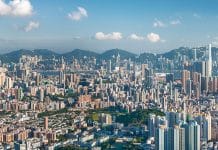The Institute for Democracy and Economic Affairs (IDEAS) warns that the government’s recent decision to allow savers at the Employees Provident Fund (EPF) to make another withdrawal of up to RM10,000 from their EPF savings risks leaving even more EPF savers with insufficient savings once they reach retirement.
As this will become an increasingly pertinent issue as Malaysia transitions to an aged society over the next two decades, the institute believes that EPF withdrawals should be a policy of last resort, used in emergency situations only. Instead, existing funds such as the National Disaster Relief Fund (TBBN), the National Disaster Relief Trust Fund (KWABBN) and zakat (religious alms) should be utilised instead.
It notes that up to now, the government had allowed EPF savers to withdraw up to RM71,000 from their retirement funds through three previous EPF withdrawal programmes, which amounted to RM101 billion. As highlighted by EPF, this led to a total of 6.1 million members now having less than RM10,000 in savings in their retirement funds. EPF further emphasised that as of October 2021, 3.6 million contributors have less than RM1,000 in their accounts. From this group, 2 million Bumiputera members have less than RM1,000 as savings.
“While the government is correct in wanting to provide immediate relief to low-income Malaysians who are struggling in the aftermath of the COVID-19 pandemic as well as the recent flooding”, said IDEAS CEO, Tricia Yeoh, “we have to remember that the EPF was specifically set up to provide a social safety net for pensioners in Malaysia. As such, the withdrawal and its timeline need to mirror that objective – for retirement purposes and for those purposes alone. It believes that the decision to continue allowing unending EPF withdrawals to be made is not grounded on sound economic logic but is a knee-jerk reaction, responding to a political agenda. Such short-term thinking will have a detrimental impact over the long run and we urge political leaders to consider the negative impacts such a policy entails for our pensioners and future generations. ”
“Bear in mind, in order to allow people to withdraw their savings, EPF would be forced to sell more of its overseas assets at a time of volatile market conditions due to the ongoing war in Ukraine, inflationary pressures on global energy and commodity prices, as well as expectations of central banks raising interest rates sometime this year.”
“Also, should the EPF be forced to adjust local equity holdings, this could impact Bursa Malaysia badly, further hitting EPF accounts.”
“According to data by the World Bank, Malaysia had already become an aging society in 2020, with approximately 7% of the population aged 65 and above”, stated Dr. Juita Mohamad, Director of the Economics and Business Unit at IDEAS. “Based on latest projections, Malaysia will become an “aged society” by 2044 with over 14% of its population above the age of 65. It is crucial that our increasingly large pensioner population have an adequate cushion when they hit retirement.”
“With the economy recovering and the job market strengthening with the absence of lockdowns, it believes that EPF withdrawals should be used as the last resort in emergency situations only.”
The institute noted that there are various existing funds at both the federal and state levels that can be pooled and tapped into to help vulnerable households. These funds include the National Disaster Relief Fund (TBBN), which is funded by donations from various parties and is set up to manage said disaster relief donations, as well as the National Disaster Relief Trust Fund (KWABBN), which was set up in 2016 under the Financial Procedure Act 1957 with the aims of giving aid to disaster victims, paying for disaster management activities or costs, and providing aid to state governments, departments or agencies. At the state level, additionally, zakat funds need to also be further distributed as a powerful poverty alleviation and wealth redistribution tool. Such a tool can be deployed more effectively at the micro-level to targeted vulnerable households in a post-pandemic setting to top up existing federal funds.
“In the long term, the Malaysian government should focus on creating more formalised social safety nets which would cover both formal and informal workers”, Juita said.
IDEAS.
The views and opinions expressed in this article are those of the author/s and do not necessarily reflect the position of BusinessToday. Any content provided by our contributing authors is of their own opinion.









